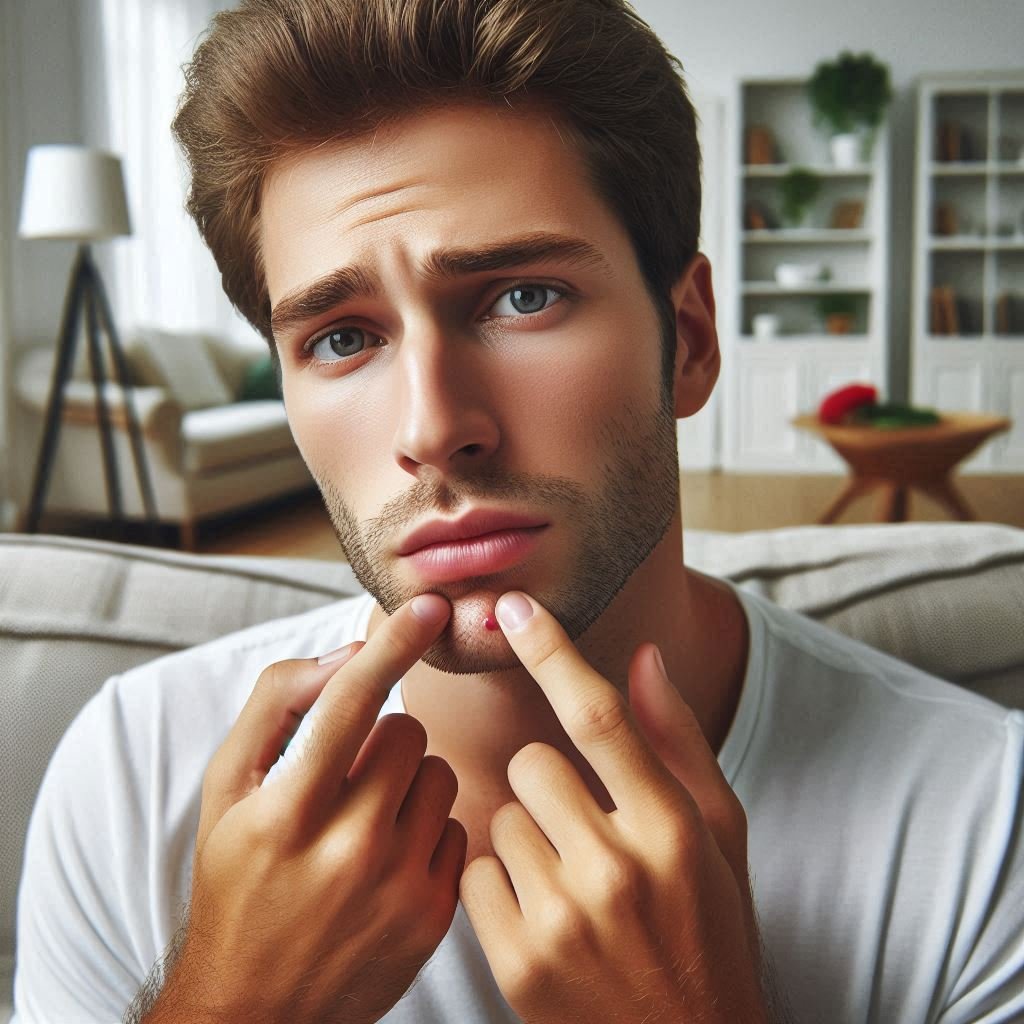
Cold sore symptoms are not exactly the same for every individual. Each person and cold sore outbreak is unique.
Being able to effectively cope with your cold sores depends greatly on your awareness of your personal cold sore symptoms. This knowledge is critical if you want to reduce the severity of your cold sores – or completely eliminate cold sores in your life.
After reading this article, you will have the facts you need to identify your cold sore symptoms and choose an appropriate cold sore treatment. Often, with proper and timely action, you can be cold sore free for life.
Quite likely you know by now that cold sores are caused by the herpes simplex virus – either type 1 or type 2. As long as the virus remains dormant, you won’t experience any symptoms of a cold sore.
But if and when the cold sore virus becomes active, you will begin to encounter an avalanche of cold sore symptoms at the target area.
The first cold sore symptom that you will notice is often called the itching stage. At this stage your body is sensing the virus moving from cell to cell of that nerve, toward the surface. Although itching is quite common, you may also experience dryness, tingling, or even a burning sensation.
Fact: When you start feeling these first symptoms, a cold sore is very close, perhaps only hours. If you act quickly, you can stop it and send the virus back into hibernation. Now is the time to apply a good cold sore treatment or ice to the target area. You may, as some folks have, start taking some lysine capsules.
If you do not have a cold sore treatment with you, hold ice or a cold drink to the area. The cold will discourage, or at least delay, the virus from trying to replicate. Even if you do not stop the cold sore dead, the continuing symptoms could be a lot less severe.
The next symptom to expect is the inflammation stage.
The cold sore symptoms here include little red bumps, often mistaken for pimples. These are hard and painful. Swelling begins, along with painful enlargement of the lymph glands under the jaw.
Additional symptoms include headaches, malaise, and a slight fever.
Fever reducers and pain relievers are often used during this time. Some cold sore remedies at your local store may contain numbing agents. They help for comfort but do little to prevent or shorten the cold sore event. Ice is excellent to reduce this symptom.
The next symptom of a cold sore is the open sore. The red bumps burst and merge, usually into one or two open sores. This is a painful and very unsightly period. The sore is weeping a fluid that is teaming with newly created virus. Headaches, fever and painful lymph glands are common here.
Fact: Although cold sores are contagious from start to finish, the open sore and scab stages are dangerously contagious to others, as well as yourself. Alcohol kills viruses and will keep the wound clean. Use extreme caution not to spread it, especially to your eyes. Eye damage can result.
This open sore now leads into the crust stage which delivers more uncomfortable cold sore symptoms. It is still very painful to the touch. The yellowish crust often cracks when you eat or smile, creating additional pain. You still may be bothered with headaches and fever. Your enlarged lymph glands will begin going back toward normal now. There will continue to be itching and much discomfort as the wound heals under the scab.
Your scab may last up to a week or so. Even though new skin covers the area, you will notice a reddish look and still some discomfort. The sore is still healing below the new skin. It is a deep wound so this may take another week or more. Fever and headaches should now be gone and your lymph gland should be greatly reduced.
Sorry, but you are still contagious until the redness is completely gone. Also, be warned that during this final cold sore symptom, the cold sore can come right back at you.
Keep treating it with ice or the cold sore treatment of your choice. Ice provides welcome relief during any stage or symptom, although it may slow healing at this point by driving blood away from the area.
Reducing or eliminating cold sores in your life depends on early detection and active treatment of your cold sore symptoms.




